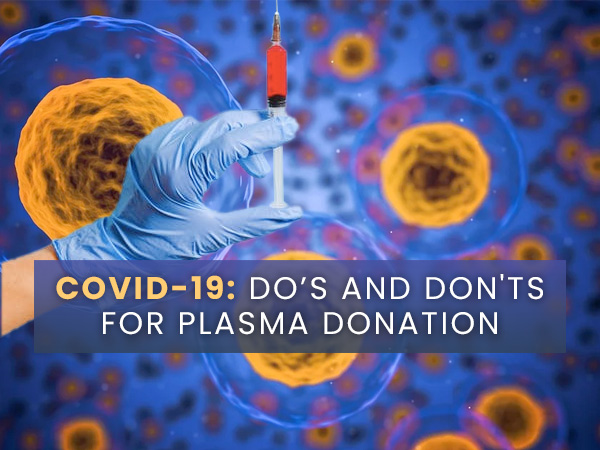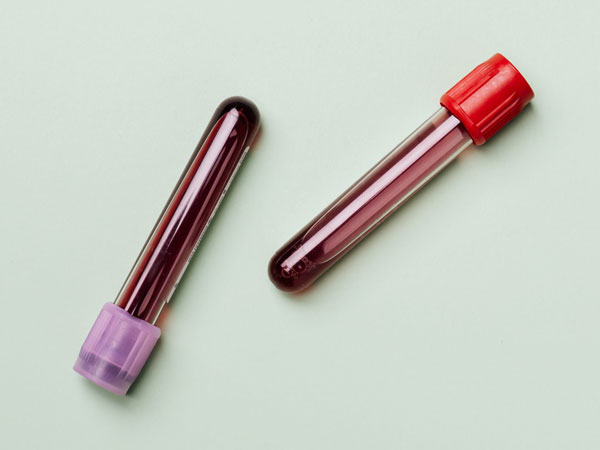Just In
- 5 hrs ago

- 6 hrs ago

- 10 hrs ago

- 11 hrs ago

Don't Miss
- Sports
 CSK vs LSG IPL 2024: Stoinis eclipses Gaikwad Heroics as Lucknow reign supreme down South
CSK vs LSG IPL 2024: Stoinis eclipses Gaikwad Heroics as Lucknow reign supreme down South - News
 Senator Lambie Calls For Elon Musk's Imprisonment Over Wakeley Church Stabbing Posts
Senator Lambie Calls For Elon Musk's Imprisonment Over Wakeley Church Stabbing Posts - Movies
 Mirzapur 3 OTT Release Date, Platform: When Will Mirzapur Season 3 Premiere On Amazon Prime Video?
Mirzapur 3 OTT Release Date, Platform: When Will Mirzapur Season 3 Premiere On Amazon Prime Video? - Finance
 25% Dividend Record Date: Logistic Stock Nears 1-Year High And It Belongs To Mahindra; Motilal Neutral
25% Dividend Record Date: Logistic Stock Nears 1-Year High And It Belongs To Mahindra; Motilal Neutral - Education
 Telangana Inter Manabadi 1st and 2nd Year Results 2024 to be Declared Tomorrow
Telangana Inter Manabadi 1st and 2nd Year Results 2024 to be Declared Tomorrow - Automobiles
 Chrysler Pacifica Marks Seven Years As Most Awarded Minivan With New Campaign
Chrysler Pacifica Marks Seven Years As Most Awarded Minivan With New Campaign - Technology
 Xiaomi Robot Vacuum Cleaner S10, Handheld Garment Steamer, and Redmi Buds 5A Launched in India
Xiaomi Robot Vacuum Cleaner S10, Handheld Garment Steamer, and Redmi Buds 5A Launched in India - Travel
Kurnool's Hidden Gems: A Guide To Exploring India's Lesser-Known Treasures
COVID-19: Do’s And Don'ts For Plasma Donation
Convalescent plasma therapy, also known as plasma therapy, is among the best therapies to treat critically ill patients of COVID-19. This treatment method has been used in earlier pandemics such as SARS, MERS and H1N1 to treat patients.

As the cases of coronavirus are increasing day by day, healthcare professionals are struggling to treat their patients or to lower their symptoms to an extent. This adjuvant therapy has benefited a lot of COVID-19 patients since last year and is still treating patients with severe symptoms of the coronavirus.
In this article, we will discuss the dos and don'ts of plasma therapy which a person must keep in their mind before donating or receiving plasma. Take a look.


What Is Plasma Therapy?
Plasma therapy is a treatment method in which convalescent blood products such as plasma are taken from patients who have already recovered from the infection, and is administered to patients who are currently suffering from COVID-19 and have lower chances of recovery. [1]
Plasma is the largest part of the blood and makes for more than half of the entire blood content. When separated from the blood, it appears clear and light yellow liquid.
Plasma is mainly asked for a donation as along with salt, enzymes, proteins and water, they also contain antibodies, which may help plasma donors to recover soon from their illness by boosting their immunity. This is because, as your antibodies have helped you fight the virus, they can also help others fight the same infection.

Compared to last year, coronavirus has triple mutated this year and is affecting people at a faster rate with diverse symptoms. This means that the new strain of coronavirus has the ability to affect the immune system quicker in comparison to its previous variant.
To cope with the new strain, our antibodies may require some time to evolve too and fight back. Therefore, if plasma from a recovered patient is administered to patients who are still recovering from the condition, chances are that their body will offer instant immunity and treat the condition sooner by reducing symptoms.
Who Can Donate Plasma?
Plasma donors can successfully save many lives of people suffering from COVID-19. However, there are certain limitations to who and when can a person donate their plasma.
A person can donate plasma if:
- You have been tested positive for COVID-19 and have fully recovered or have tested negative now for the infection.
- You don't experience any symptoms for 14 days after recovering from the condition.
- You should have high levels of antibodies in your plasma.
- Your age is between 18-60 years.
Earth Day: Effective Eco-Friendly Ways To Improve Your Health And Stay Fit
Who Cannot Donate Plasma?
Even if you have recovered from COVID-19, you cannot donate plasma if you fall under the below-mentioned categories:
- Underweight or less than 50 kg.
- Have diabetes
- Is pregnant
- Have uncontrolled high blood pressure
- Have cancer or is a cancer survivor.
- Have certain chronic lung/kidney or heart conditions.
COVID-19 Resources And Helpline: Availability Of Oxygen, Hospital Beds Plasma, Remdesivir And More
When Can You Request For Plasma?
A COVID-19 patient can request plasma if:
- The same has been prescribed to the patient by a medical expert.
- Patients have low levels of plasma in their blood.
- If you are critically ill and have a donor with the same blood group.
Bilateral Inguinal Hernia In Newborns: Causes, Symptoms, Risk Factors And Treatments

Do's And Don'ts
1.
Carry
a
hard
copy
of
your
negative
RT-PCR
test
for
four
months
with
identity
proof
such
as
an
Aadhar
card.
2.
In
this
way,
you
may
save
some
time
If
you
are
asymptomatic,
you
can
donate
only
after
14
days
of
a
COVID-19
positive
report.
If
you
are
symptomatic,
you
can
donate
after
14
days
of
the
resolution
of
your
symptoms.
3.
Women
who
have
ever
been
pregnant
cannot
donate
plasma.
This
is
because,
according
to
some
studies,
plasma
from
women
who
were
pregnant
or
have
children,
are
known
to
cause
lung
damage
or
incidence
of
lung
diseases
in
the
recipients.
Also,
in
pregnant
women
or
a
mother,
some
antibodies
belong
to
her
partner,
which
may
cause
adverse
effects
when
given
to
COVID-19
patients.
4.
People
who
have
been
vaccinated
for
COVID-19
can
donate
plasma
after
28
days
from
the
date
of
vaccination.
5.
If
you
have
been
found
with
lesser
plasma
levels,
you
may
be
rejected
from
being
a
donor.
6.
These
rules
have
been
set
as
per
the
Drugs
and
Cosmetics
Act
and
Rules.

To Conclude
Plasma donation facilities are available or made available to every city due to increasing coronavirus cases. You can visit your nearest donation centre and donate the plasma, after getting checked. Save the lives of others by donating your plasma and take a step forward in fighting the pandemic.
-
 healthCOVID Surge In India: Do You Need A COVID-19 Booster Shot?
healthCOVID Surge In India: Do You Need A COVID-19 Booster Shot? -
 disorders cureCommon COVID Symptoms In Fully Vaccinated Individuals: What You Should Know
disorders cureCommon COVID Symptoms In Fully Vaccinated Individuals: What You Should Know -
 wellnessMild COVID Linked To Life-Threatening Blood Clots, Increased Risk Of Cardiovascular Disease; Study
wellnessMild COVID Linked To Life-Threatening Blood Clots, Increased Risk Of Cardiovascular Disease; Study -
 wellnessCOVID-19 Variants In India: New COVID Variant May Pose Threat To Elderly People
wellnessCOVID-19 Variants In India: New COVID Variant May Pose Threat To Elderly People -
 basicsCovid-19 Linked To Early Onset Of Periods: What You Need To Know
basicsCovid-19 Linked To Early Onset Of Periods: What You Need To Know -
 wellnessCOVID XBB Variants Of Omicron In India: What You Should Know
wellnessCOVID XBB Variants Of Omicron In India: What You Should Know -
 disorders cureNew Omicron Subvariant BQ.1 Detected In Maharashtra: What You Should Know
disorders cureNew Omicron Subvariant BQ.1 Detected In Maharashtra: What You Should Know -
 disorders cureOmicron BF.7 In India, Risk Of Fresh Wave During Diwali: What You Should Know
disorders cureOmicron BF.7 In India, Risk Of Fresh Wave During Diwali: What You Should Know -
 wellnessCoronavirus Residues Might Be Causing Long COVID: New Study
wellnessCoronavirus Residues Might Be Causing Long COVID: New Study -
 wellnessCentury-Old TB Vaccine Could Be Effective Against Covid-19 And Other Infections: New Study
wellnessCentury-Old TB Vaccine Could Be Effective Against Covid-19 And Other Infections: New Study -
 disorders cureCovid-19 Patients At Risk Of Neurological & Psychiatric Conditions Two Years After The Infection: New Study
disorders cureCovid-19 Patients At Risk Of Neurological & Psychiatric Conditions Two Years After The Infection: New Study -
 wellnessCOVID In Smokers: An Expert Explains
wellnessCOVID In Smokers: An Expert Explains


 Click it and Unblock the Notifications
Click it and Unblock the Notifications



